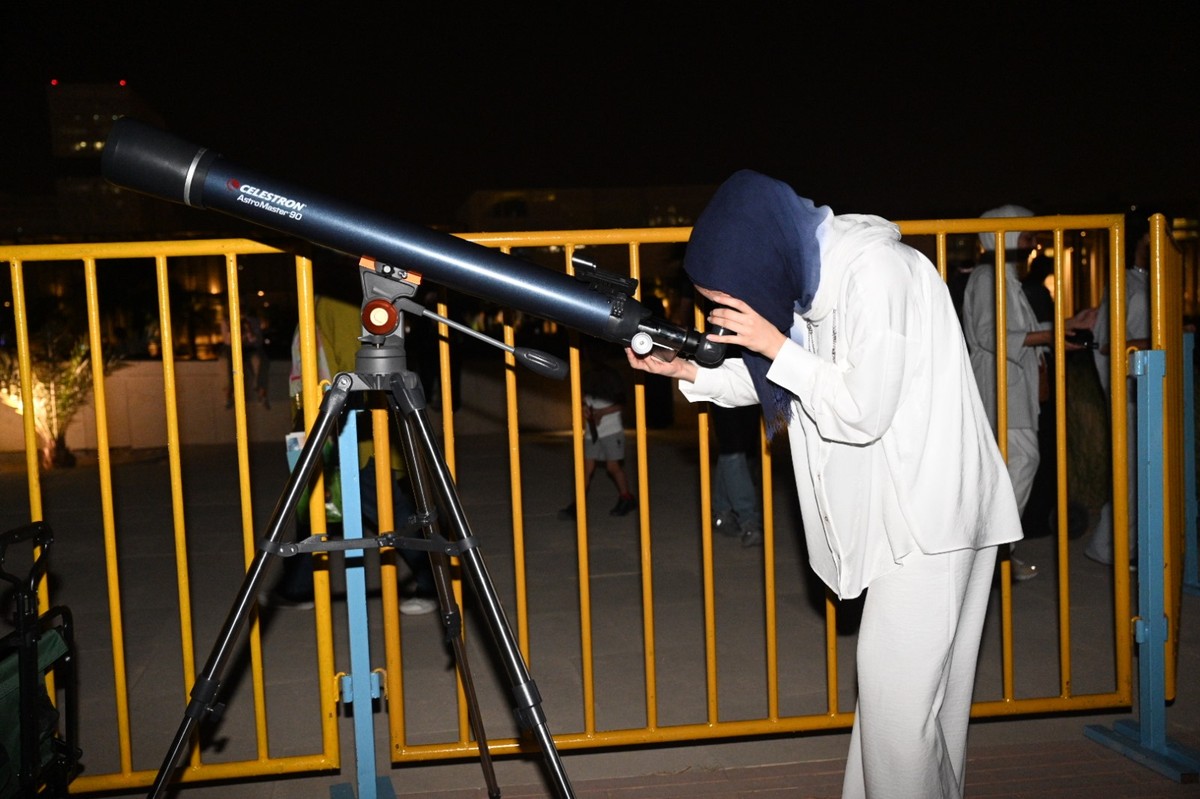07/09/2025
07/09/2025

KUWAIT CITY, Sept 7: The skies of Kuwait were illuminated on Sunday by a rare astronomical event known as the "Blood Moon."
Yousef Al-Ajari, Director General of Al-Ajari Scientific Center, told KUNA that the lunar eclipse began low on the eastern horizon and gradually shifted toward the southeast at mid-eclipse. The penumbral phase started at 6:28 p.m., causing a slight dimming of the moon’s brightness. The partial eclipse followed at 7:27 p.m., and by 8:30 p.m., the moon had turned a striking red, earning the phenomenon its name, the "Blood Moon."
The eclipse reached its peak at 9:11 p.m., with the moon at its deepest point in Earth’s shadow at an altitude of 38 degrees. The spectacle concluded with the end of the total eclipse at 10:56 p.m., followed by the penumbral phase ending at 11:55 p.m.
Al-Ajari noted that the event was clearly visible across Kuwait, particularly along the eastern coasts and open areas. Many residents were able to watch the phenomenon with the naked eye. The Blood Moon was also observed in large parts of Europe, Africa, Asia, and Australia.
Meanwhile, in an atmosphere filled with scientific curiosity and excitement, students, researchers, and astronomy enthusiasts gathered on Sunday at Sabah Al-Salem University City to witness the total lunar eclipse. The event was organized by Kuwait University’s (KU) Department of Physics at the College of Science, in cooperation with the Kuwait National Center for Space Research (KNCSR).

Held under the patronage of the Kuwait Foundation for the Advancement of Sciences (KFAS), the event attracted a large turnout from the public. Participants were able to observe the rare celestial phenomenon using field telescopes provided in collaboration with the Scientific Center and Al-Ajari Center.
Throughout the evening, faculty members offered live explanations about the stages of the eclipse, methods of observation, and the scientific significance of the phenomenon. The organizers also arranged a dedicated area for performing the eclipse prayer, along with an entertainment section for children to enjoy.
This initiative reflects Kuwait University’s commitment to promoting scientific awareness and strengthening public interest in astronomy. It also provided attendees with a unique hands-on opportunity to experience one of the most remarkable cosmic events. (KUNA)


